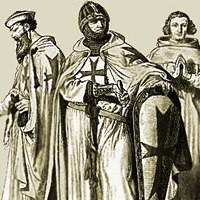![]()
RubinReports | By Barry Rubin

Abu Bakr (Abdullah ibn Abi Quhafa) was a companion (Sahabi) and the father-in-law of the Islamic prophet Muhammad. He became the first Caliph of Islam following Muhammad's death.
Who gets to be the caliph? After all, if you want to have a caliphate, as revolutionary Islamists do with much popular support among Muslims, somebody has to get the job and he has to have his capital somewhere. And that’s why the caliphate issue, beyond the most abstract demagoguery, is a potential suicide machine.
Once the issue is raised the battle begins. The caliph would have to be Sunni and thus the Shia would not accept any Sunni caliph. Indeed, while the caliph may be a positive symbol for Sunni Islamists, such a caliphate would be a symbol of oppression for the Shias, that is the majority in Iran, Iraq, and Bahrain, as well as a leading factor in Lebanon and elsewhere. This situation would set off Sunni-Shia wars.
As for the Sunnis, who among them might be a legitimate candidate? Ironically, the two who have the best credentials are anti-Islamist monarchs: the kings of Morocco and of Jordan who both claim — a claim that is generally recognized — descent from Muhammad, Islam’s founder.
Ever since the Turkish Republic abolished the caliphate, Islamists have sought to restore it. Indeed, the Muslim Brotherhood was founded in the 1920s for that very purpose. One should note, by the way, that the Istanbul-based caliphate had long been meaningless. When the caliph declared a jihad against Britain and France during World War One, a move promoted by Germany, he was almost totally ignored. In fact, Arab nationalists revolted against his rule and that event is the historical basis for most of the Arabic-speaking states that exist today.
Just two days after the Turks deposed the old one, Sharif of Mecca Husain Bin Ali, ruler of the Hijaz in western Arabia, declared himself caliph. But nothing came of it since he had so many enemies. In 1925 his own kingdom was conquered and annexed by Abd al-Aziz Ibn Saud, who went on to create Saudi Arabia. Jordan’s king is one of his descendants.
Yet the Arabs — notably the Muslim Brotherhood–and Indian Muslims who demanded a renewed caliphate had to be cautious since designating anyone as caliph would set off personal and national rivalries that would dissolve the movement in civil war.
The man in the best position to claim that post — Amin al-Husseini, the mufti of Palestine — could not openly put forward his candidacy, though he hinted at it. Still, if his Nazi allies had won World War Two, al-Husseini might well have declared himself, and been widely accepted, as caliph. Since the 1920s, though, only marginal madmen have declared themselves to be caliph.
A key element in al-Husseini’s bid was that he claimed, and was accepted as, a descendent of Muhammad’s family. Today, ironically, the two men in the best position to put forward a similar assertion are anti-Islamist monarchs, the kings of Morocco and Jordan. Islamists would be horrified by any such candidacy. The Saudis would also reject their old rival dynasty in Jordan, any Islamist, and probably anyone at all being caliph. The Turkish Islamists would reject any Arab caliphate.
In short, the whole issue is a mess within a minefield. The fact is that there is no good alternative candidate for the caliphate on the Sunni Islamist side. And if any such candidacy was put forward, it would be attacked and ridiculed by others. Rival bids would quickly appear and the Islamists would dissolve into bitterly contending factions engaged in a bloody feud.
For the Wahhabi Saudis, any talk of designating a caliph is also taboo, in part because such a caliph would inevitably be a non-Wahhabi. For many non-Arab Muslims, having an Arab caliph would be objectionable.
As for the Shia, they would be outraged since any likely caliph would be an anti-Shia Sunni.
A bit of background is useful here. The origin of Shia Islam was in the reaction against the choice of caliphs who were not from Muhammad’s family. Their hero was Ali (the word Shia arises from the phrase “the faction of Ali”), the fourth caliph. The fifth caliph killed Ali’s son and heir. To this day, the Sunnis view as “rightly guided” men who are cursed by the Shia. No conciliation on that point.
Why a caliph? Clearly that is the “fundamental” historical approach of Islam. In instrumental terms, a caliph would lead and organize the umma, the community of Muslims. Such a centralizing force would supposedly lead to a single standard of Sharia law and political organization. Beyond that it would, in the Islamists’ vision, produce political unity, overriding the existing states. And one important detail is that only the caliph could decree an “offensive Jihad,” that is an attack to conquer non-Muslim land and ultimately the entire world.
Yet while the caliphate is supposed to transcend states, the question is from where would the caliph come and where would he have his capital? Because the movement that produced the caliph would dominate the Muslim world. Egyptian Salafis want a Salafi caliph; the Muslim Brotherhood wants a Brotherhood caliph.
And the same point applies to the country from which the caliph came. For example, an Egyptian caliph means, in effect, an Egyptian empire.
Remember that the main cause of Arab conflict in the second half of the twentieth century was the Arab nationalist ideology that declared all Arabs should be united in a single state. Consequently, Arab rulers — particularly in Egypt, Iraq, and Syria — competed to be the leader, producing all sorts of wars, crises, and mutual subversion. The caliphate issue and the leadership of Islam has the capacity to do the same thing for the first half of the twenty-first century.
Thus, the caliphate is an ideal goal of contemporary Islamists. But they must be very careful and very vague. Consequently, the caliphate is an important point of Islamist ideology yet will not become an issue in practice. For now, Islamists concentrate on seizing state power where they don’t have it and fundamentally transforming any societies they take over.
Barry Rubin is director of the Global Research in International Affairs (GLORIA) Center and editor of the Middle East Review of International Affairs (MERIA) Journal. His book, “Israel: An Introduction“, has just been published by Yale University Press. Other recent books include “The Israel-Arab Reader” (seventh edition), “The Long War for Freedom: The Arab Struggle for Democracy in the Middle East” (Wiley), and “The Truth About Syria” (Palgrave-Macmillan). The website of the GLORIA Center and of his blog, Rubin Reports. His original articles are published at PJMedia.



 RSS
RSS










Latest Comments
Hello Mike, Thank you for your positive feedback to the article. I felt there wasn’t too much critical analysis of ...
Thanks for this considered and well constructed article. A follow up article on the manner in which the editorial contro...
THE CLUELESSNESS OF CLAIMING THAT OBAMA'S MIDDLE EAST POLICIES WERE A FAILURE CANNOT BE FURTHER FROM THE TRUTH, WHAT THE...
As long as Obama is the president of the usa do not trust the us government......
Thank you for an good read....